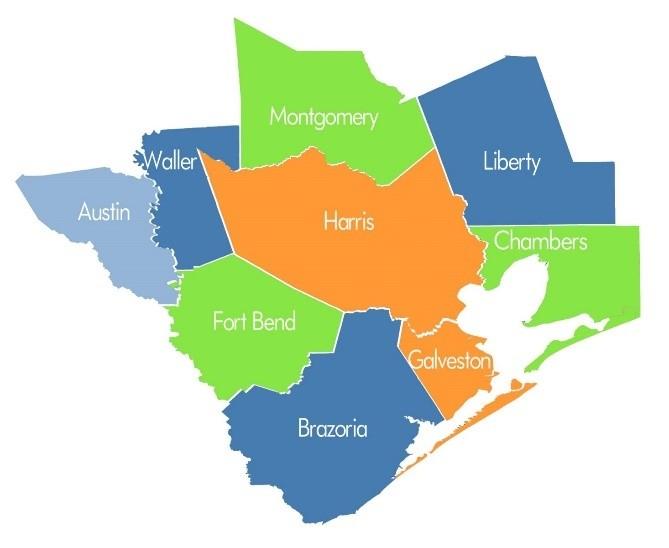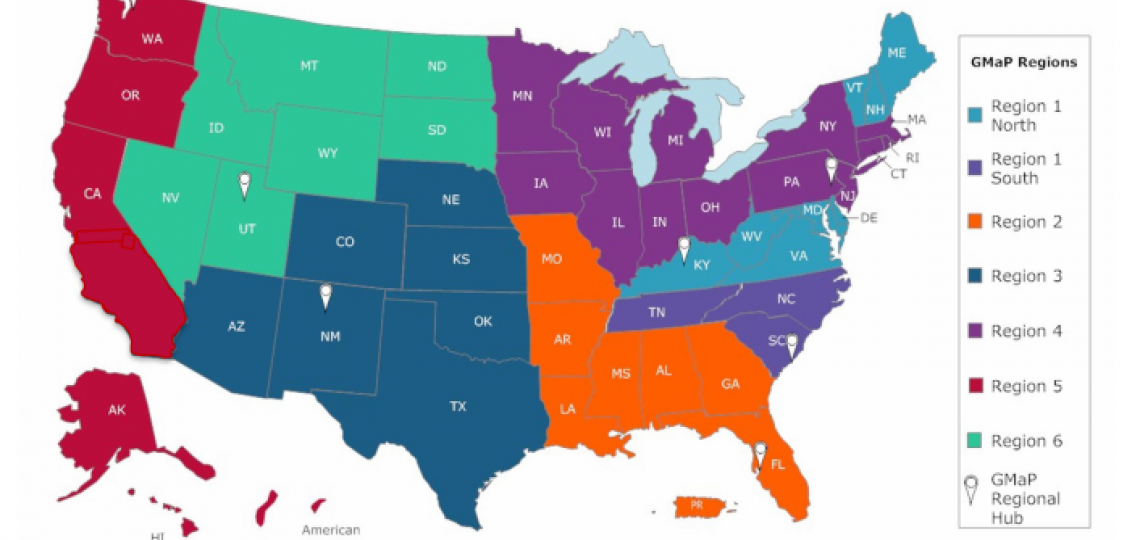Catchment Area

The catchment area of the Dan L Duncan Comprehensive Cancer Center was recently expanded from the Harris County area to now include the broader metropolitan region around Houston, a geographic area that includes Harris and eight surrounding counties. The catchment area refers to the geographic area in which a cancer center focuses its activities.
Community Health Needs Assessment Reporting
As part of its accreditation process, the American College of Surgeon’s Commission on Cancer requires that “a patient navigation process, driven by a triennial Community Needs Assessment, [be] established to address health care disparities and barriers to cancer care resources to address identified barriers may be provided either on-site or by referral.” (Committee on Cancer Standard 3.1) (Mercurio, 2016).
Cancer-related patient navigation within Harris Health System began in the late 1990s and arose from the need to maximize systems efficiency and ensure that patients with abnormal cancer screening test results obtained timely diagnostic and therapeutic follow-up.
Since then, cancer‐related patient navigation activities within Harris Health System have expanded to include not only those aimed at ensuring follow-up among patients with abnormal screening tests but also to those aimed at increasing screening and vaccination coverage. Currently, the patient navigation programs operate within the Breast, Cervical, Colorectal, Hepatocellular, and Gastric Cancer programs, as well as in the Pediatric Service line to improve human papillomavirus (HPV) vaccination rates. The Outreach Services Department provides healthcare access navigation, and the Diagnostic and Screening Clinics to provide oncology care coordination.
Data presented in this community health needs assessment report helped guide the development of Harris Health System’s patient navigation programs. As described in this report, the two primary aims of the existing patient navigation programs are to improve access to healthcare and cancer screening tests as well as to ensure follow-up of patients with abnormal screening test results. These programs are currently reducing cancer health disparities in Harris County and improving the healthcare experience of Harris Health System patients along the cancer continuum of care.
The Cancer Community Needs Assessment was comprised of a working group with faculty and staff members from of the Dan L Duncan Comprehensive Cancer Center, Office of Outreach and Health Disparities, in conjunction with a team from the Harris Health System.
View the links below to access the full community needs assessment reports:
Reference:
Mercurio A. (2016). Commission on Cancer Standard 3.1. American College of Surgeons.
National Outreach Network
The National Outreach Network strengthens the National Cancer Institute's ability to develop and disseminate culturally appropriate, evidence-based cancer information tailored to the specific needs and expectations of underserved communities. The NON community led by Dr. Betsy Escobar works with health educators located at NCI-designated cancer centers like the Dan L Duncan Comprehensive Cancer Center.
The NON is expanding cancer centers and NCI's ability to reach underserved communities with NCI cancer information and enhance community engagement in cancer research. NON CHEs with the Geographic Management of Cancer Health Disparities Program (GMaP) hubs facilitate underserved communities' access and engagement to cancer prevention programs.
There are seven GMaP regional hubs housed at NCI-Designated Cancer Centers across the United States (map below). The GMaP hubs foster cooperation and collaboration among researchers, students, trainees, and CHEs. These hubs contribute to the science of cancer and health disparities research, promoting the next generation of competitive, underrepresented cancer investigators and enhancing access to cancer information and research among underserved communities.









